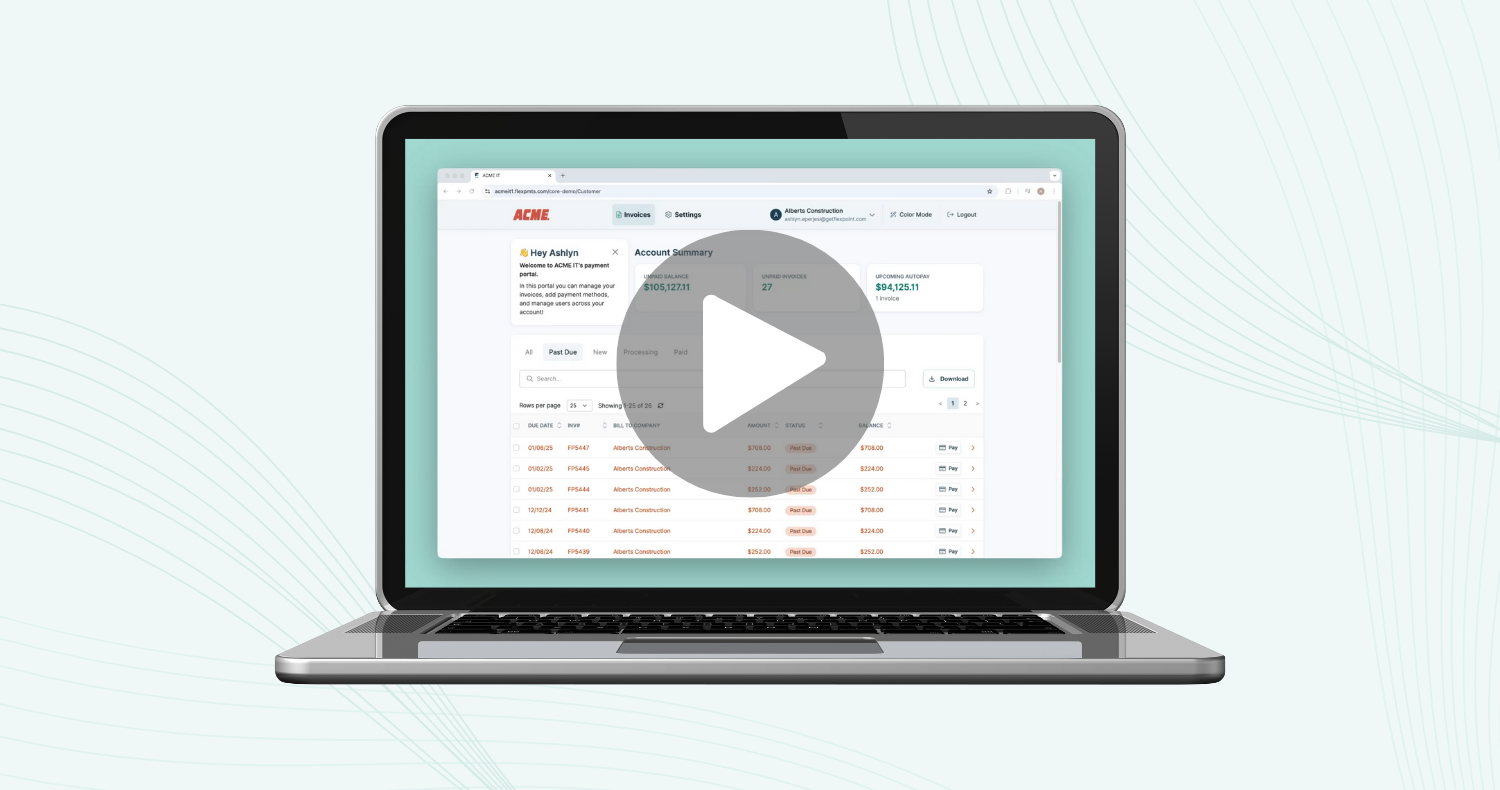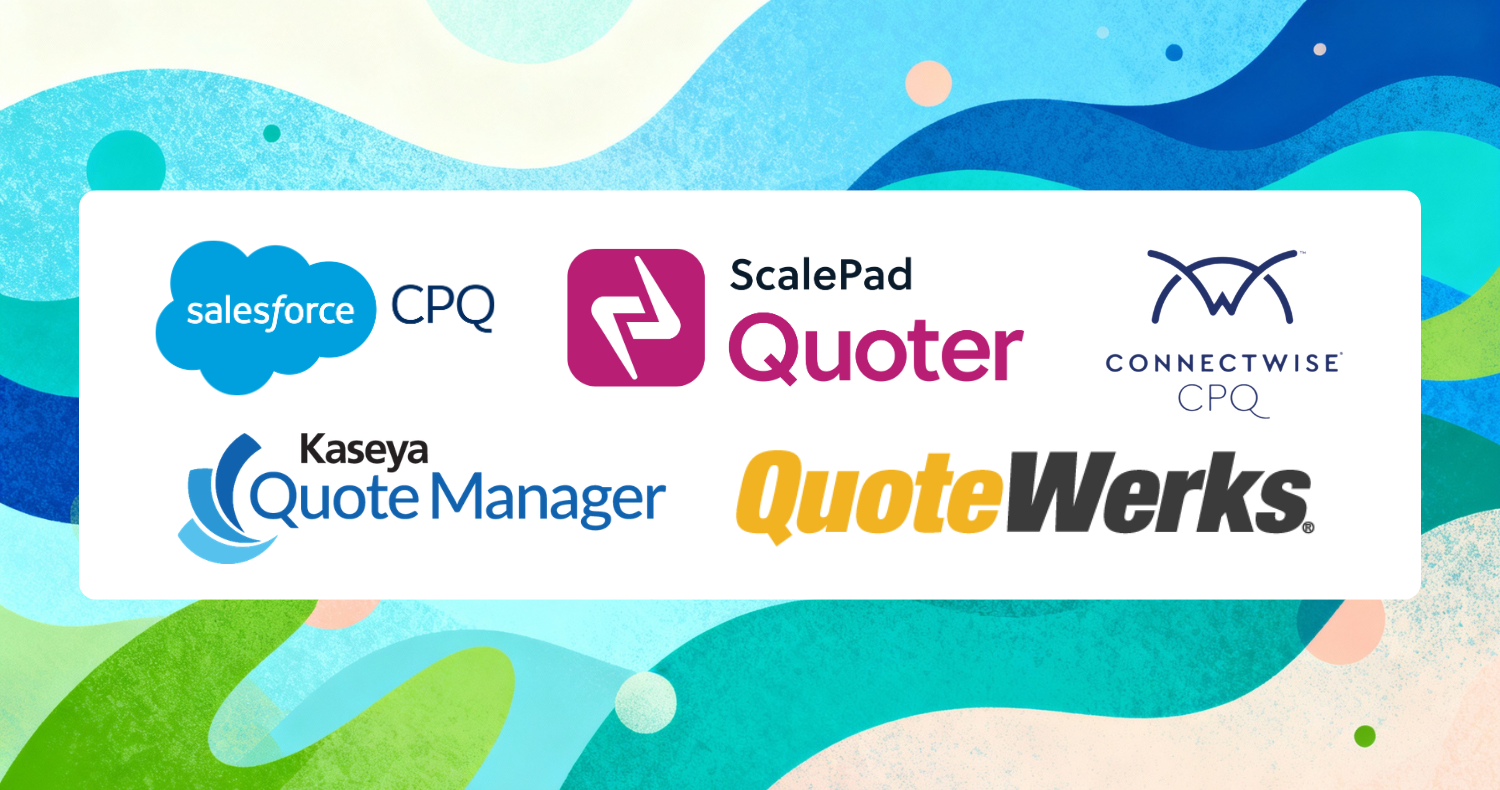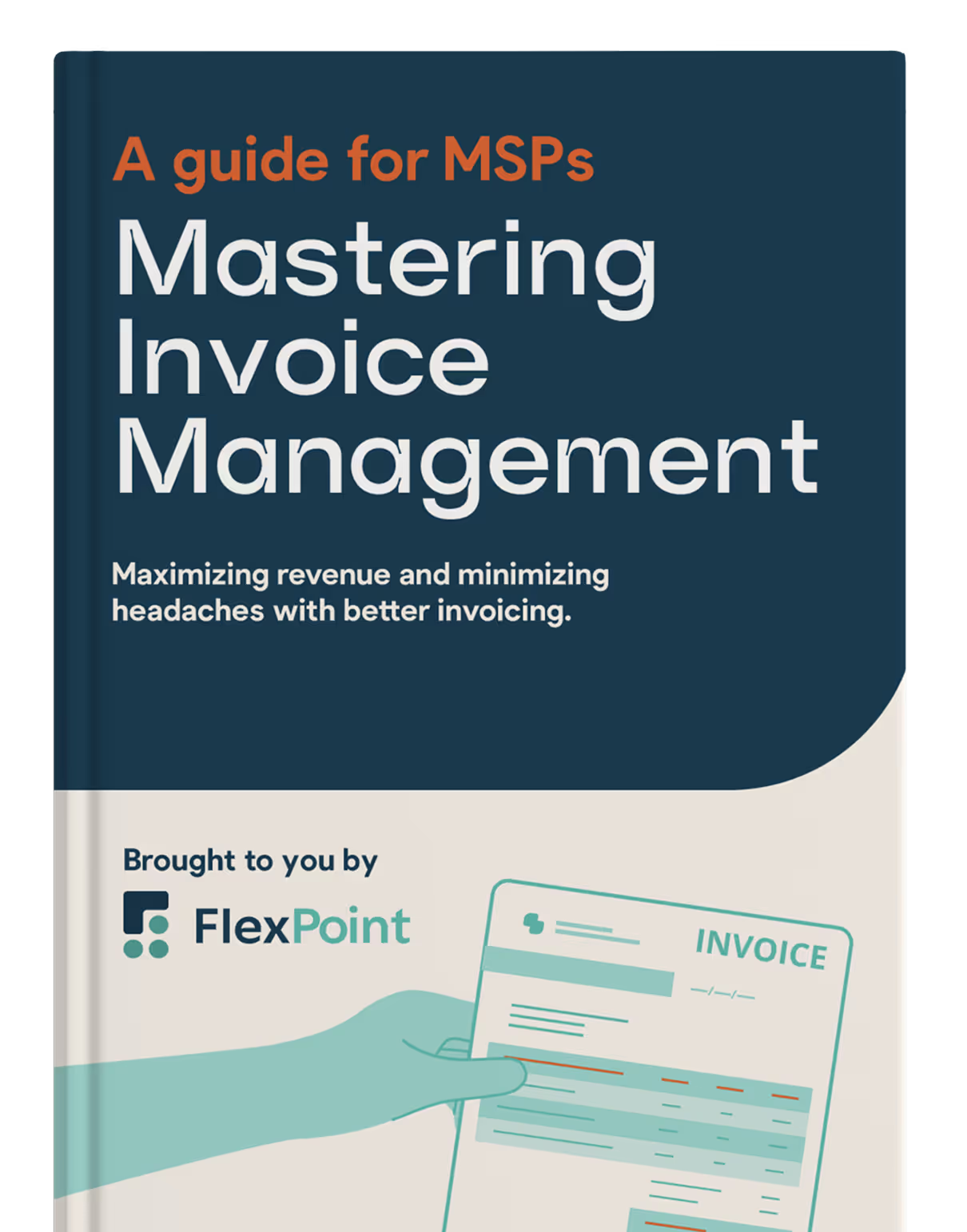The Role of MSP Billing in Achieving Scalable Growth
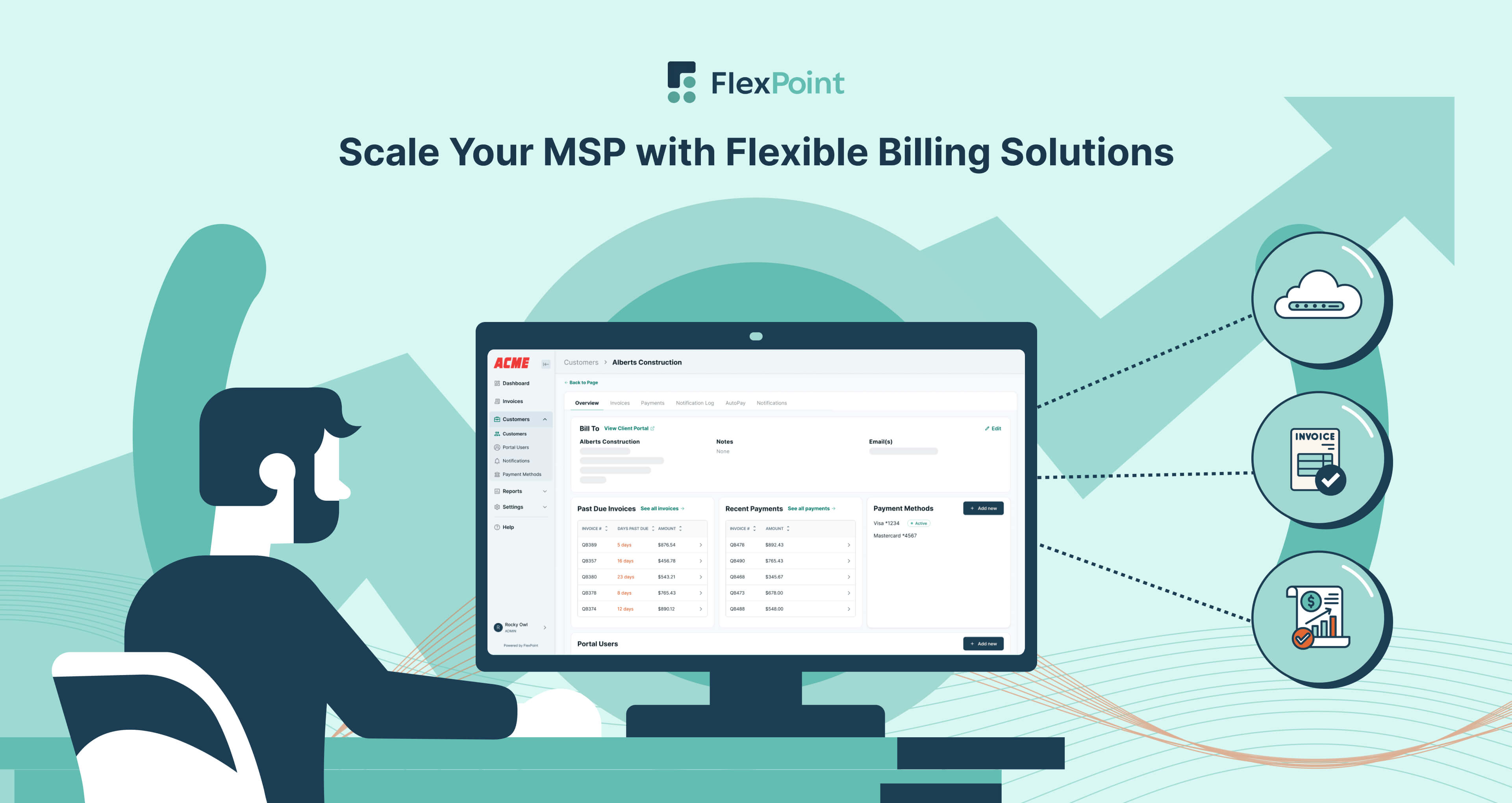
Scaling and growth bring opportunities, but they also expose Managed Service Providers (MSPs) to inefficiencies in their billing processes.
Billing challenges, including revenue management and administrative workflow issues, can hinder profitability and long-term success in the managed services provider (MSP) industry.
Manual billing processes often lead to errors, delays, and frustrated clients. Inconsistent revenue streams result from difficulties in tracking billable services and managing recurring payments.
Additionally, time-consuming administrative tasks divert resources from strategic initiatives, stifling growth potential.
This article examines how Managed Service Providers (MSPs) can optimize their billing processes to enhance revenue management, improve cash flow, and facilitate sustainable growth.
{{toc}}
The Connection Between MSP Billing and Scalable Growth
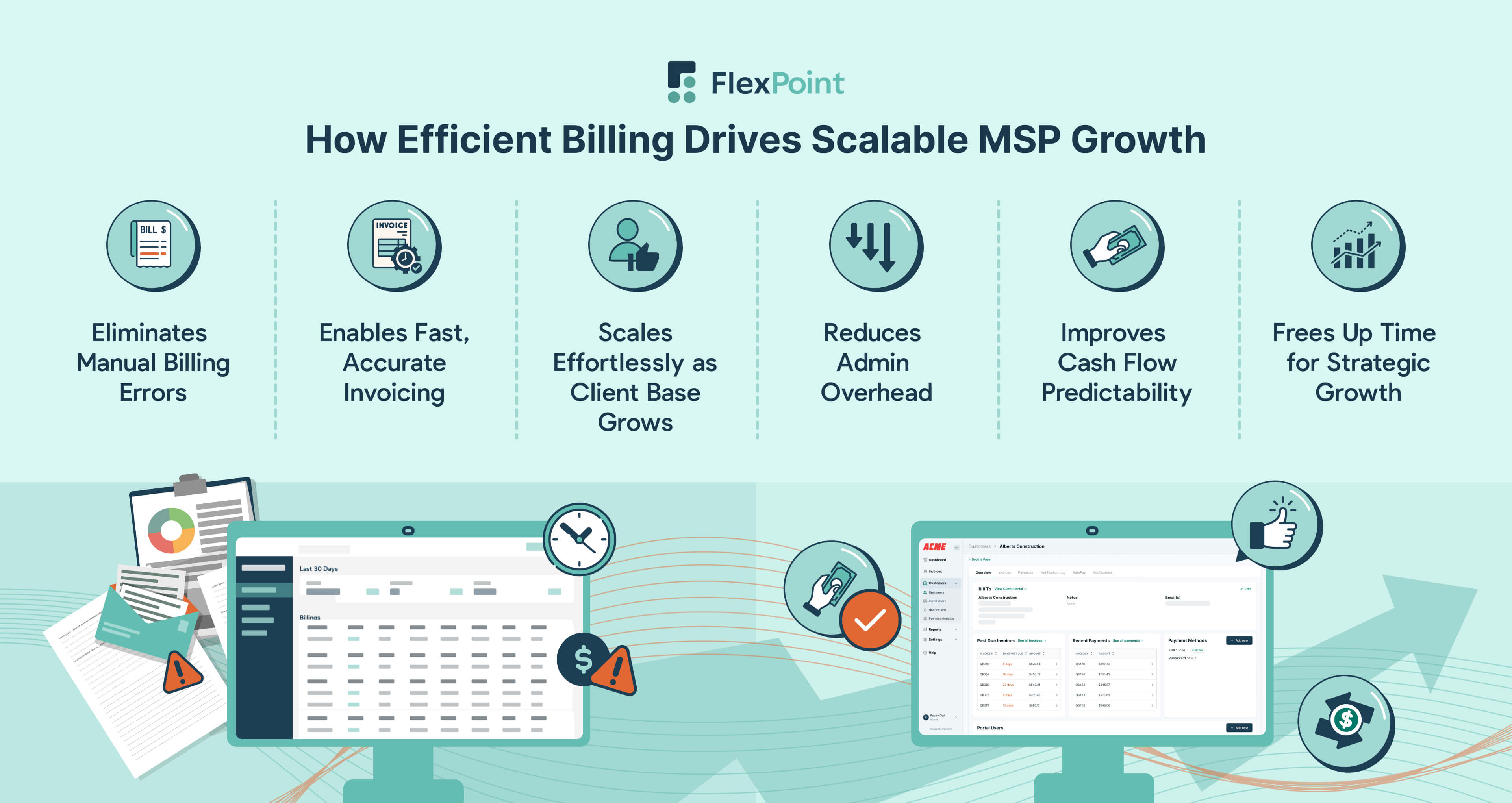
For Managed Service Providers (MSPs), efficient billing is more than a back-office task; it’s the key driver of sustainable growth.
A reliable billing process ensures a steady cash flow, accurate service tracking, and predictable revenue—all of which are critical as your business grows.
When billing runs smoothly, it’s easier to onboard more clients, add new services, and make smarter financial decisions.
However, as your client base grows, manual billing processes can quickly become a significant roadblock.
Sure, a small MSP managing 10 clients manually might not struggle too much with its initial billing workload.
But once that number grows to 50 or 100 even clients – each with different services, pricing, and billing cycles – billing errors, missed payments, and cash flow gaps become all too common.
The administrative burden of manual invoicing, tracking, and reconciliation also diverts your team's attention away from client service and strategic planning. Over time, these inefficiencies limit growth potential, increase costs, and hurt profitability.
The solution is to adopt automated billing and streamlined payment workflows.
By automating invoicing, payment collection, and reconciliation, MSPs can maintain accuracy, speed up cash flow, and scale their businesses without overwhelming their teams.
A strong billing foundation provides the freedom to focus on delivering value to your clients and the confidence to grow without financial bottlenecks holding you back.
{{ebook-cta}}
5 Strategies to Optimize MSP Billing for Scalable Growth
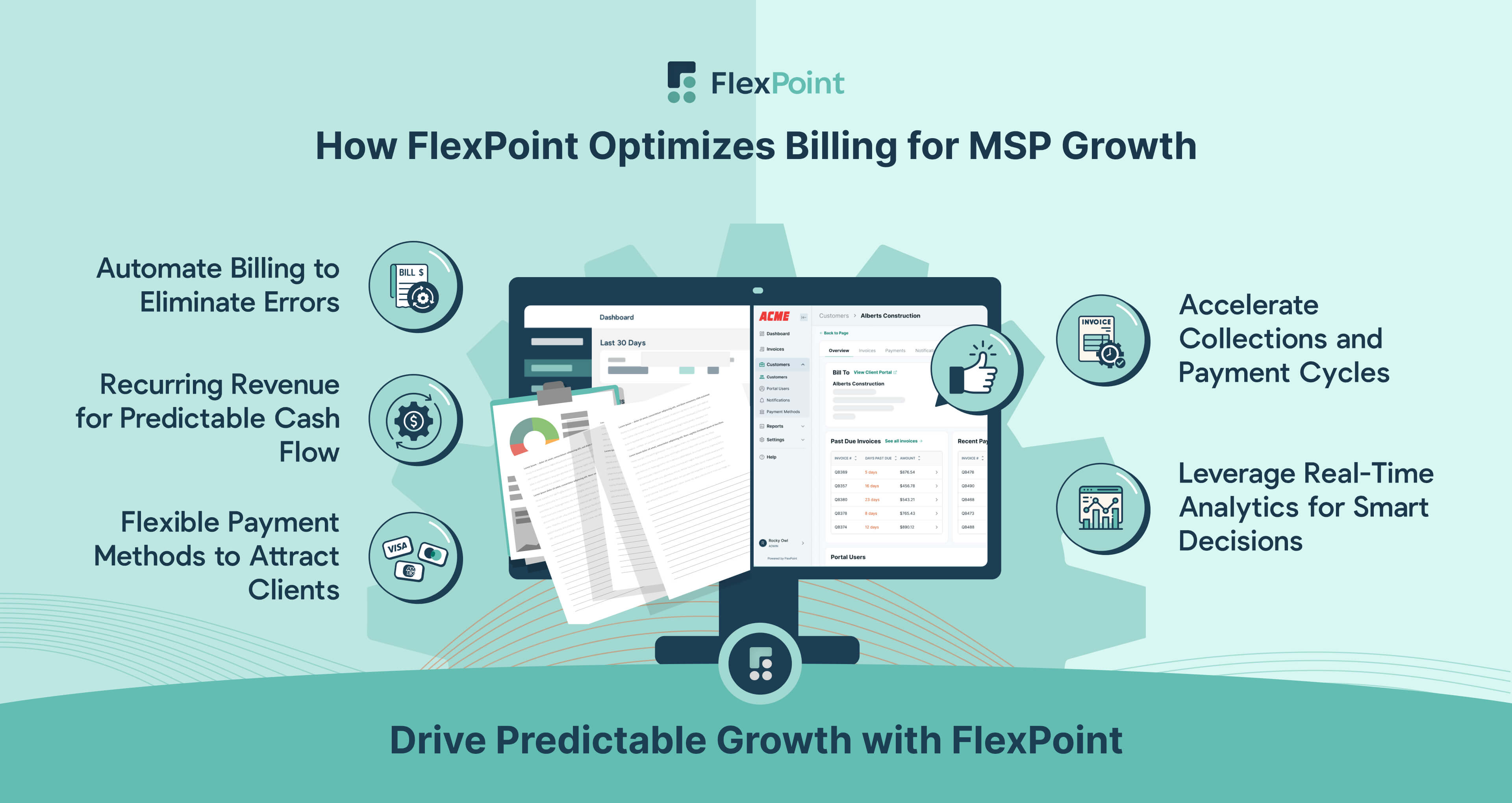
According to QuickBooks data, 89% of mid-sized businesses report that late payments actively hinder their growth.
This persistent cash flow challenge forces many MSPs into reactive financial management, leading to delayed investments.
In this section, we'll reveal practical strategies to drive sustainable growth while safeguarding your financial stability through optimized billing processes.
1. Automating Billing to Reduce Manual Work and Scale Efficiently
Manual billing processes often lead to inefficiencies as your client base and service offerings expand. The time required to generate all the necessary invoices, track all the payments, and manage collections grows exponentially.
Research indicates that businesses allocate an average of 14 hours per week to payment-related administrative tasks.
This reveals a substantial opportunity cost, diverting resources from strategic initiatives such as service optimization and business development.
Similarly, inconsistent billing cycles and delayed payment follow-ups create revenue gaps. It limits available capital for critical investments in technology, talent, or infrastructure.
Additionally, human errors in manual processes, such as incorrect billing amounts or missed invoices, can erode client trust and lead to revenue leakage.
However, automated billing systems can help you scale efficiently by eliminating time-consuming manual processes.
Let’s take the example of Tomorrow’s Technology Today, an Ohio-based MSP that was in the process of onboarding several significant new clients nationwide. Their existing payment processing platform abruptly ceased operations.
This sudden disruption created an immediate need for a viable replacement, with limited time for evaluation and implementation.
The President and CEO, Lisa Niekamp-Urwin, recognized the critical need for a platform that would be easy for both her Accounts Receivable team and their clients to use without requiring extensive support.
Following a recommendation, Lisa evaluated FlexPoint and quickly recognized it as the ideal solution. What immediately appealed to her was FlexPoint’s intuitive user interface.
FlexPoint automated key tasks, such as invoicing and payment collection, which immediately improved the efficiency of their Accounts Receivable team.
Within a year of implementing FlexPoint, Tomorrow’s Technology Today was able to streamline its payment processing, enhance client relationships, and improve operational efficiency.
This resulted in:
- 30 minutes saved per invoice.
- A 5% reduction in accounts receivable balances.

2. Structuring Recurring Revenue Models for Predictable Growth
Monthly Recurring Revenue (MRR) models help MSPs achieve financial stability by establishing predictable income streams.
Under this structure, clients pay fixed fees at regular intervals for continuous services, which provides businesses with consistent cash flow visibility.
This financial predictability allows for accurate forecasting, where you can allocate resources efficiently and make data-driven decisions about expansion and investment.
The recurring nature of these engagements also fosters long-term client relationships.
Because clients remain under service agreements, MSPs typically experience higher retention rates compared to one-time transaction models.
This sustained revenue reduces customer churn, a particularly valuable benefit when scaling operations. It also decreases the need for constant new customer acquisition to maintain growth targets.
And if you're an MSP whose cash flow relies more on billing for recurring revenue, then you must have a billing system that supports it.
For example, tekRESCUE, a Texas-based MSP, was trying to scale its operations, but managing recurring monthly and annual payments became overwhelming for the Office Administrator.
They were using QuickBooks for billing and manual entry spreadsheets to track paused clients and payment methods, which was inefficient and time-consuming.
tekRESCUE needed a more efficient and cost-effective solution to manage their recurring billing and ensure revenue consistency.
They chose FlexPoint to streamline their billing processes. A key aspect of FlexPoint's solution was automating invoice generation and payment tracking.
With FlexPoint, invoices now go out on time without oversight, freeing up their Office Administrator’s time for more critical tasks.
The platform's ability to handle recurring billing efficiently was crucial for ensuring tekRESCUE's revenue consistency and protecting its growth.
The result:
- FlexPoint reduced its accounts payable and receivable workload by a substantial 75%.
- It saved approximately 20 hours per month.

3. Improving Cash Flow Management to Sustain Expansion
According to the U.S. Chamber of Commerce, 82% of small businesses struggle with cash flow issues.
Many managed service providers face cash flow volatility due to payment delays and irregular revenue patterns.
These financial challenges often emerge from two structural issues:
- The variable timing of client payments, and
- The inconsistent workload inherent in project-based engagements.
For example, when receivables extend beyond typical 30-60 day terms, MSPs may experience working capital constraints that affect their ability to meet payroll, vendor obligations, and other fixed operational expenses.
This inconsistency makes financial planning more complex, particularly when evaluating investments in new technologies or personnel to support business growth.
Without predictable cash flow, MSPs often find themselves making reactive financial decisions rather than executing strategic growth plans.
For instance, Skycamp Technologies, an Ohio-based managed service provider (MSP), faced challenges with its billing processes due to its reliance on multiple payment processing platforms.
Their existing ACH service lacked optimization for small businesses, and while QuickBooks ACH was an option, it didn't fully integrate with their invoicing platform.
They needed end-to-end automation to reduce the time spent on accounting and manual reconciliation: a centralized billing and payments platform to eliminate administrative complexities and potential errors for both their team and their customers.
SkyCamp partnered with FlexPoint to streamline its billing and accounting processes. FlexPoint’s payment automation helped SkyCamp accelerate collections and stabilize cash flow.
Using AutoPay with reminders ensured on-time payments, streamlined operations, and boosted financial reliability.
The result:
- 8 hours saved on manual labor a month.
- The AutoPay option led to a 20% increase in clients using automated payments.
FlexPoint’s features contributed to a 30% increase in the speed of receiving payments from clients who had previously been late.

4. Leveraging Data and Analytics to Support Growth Decisions
A Bottomline survey found that 64% of businesses improved productivity and 35% cut costs by leveraging payment analytics.
Real-time financial analytics provide businesses with actionable data to enhance operational and financial decision-making.
By continuously monitoring metrics such as average revenue per user (ARPU) and days sales outstanding (DSO), you can maintain comprehensive visibility into your revenue cycle performance.
These indicators reveal patterns in client payment behaviors, service line profitability, and accounts receivable efficiency.
In addition, access to current financial data enables you to identify operational improvements. This includes adjusting payment terms for chronically late clients or reallocating resources to more profitable service offerings.
The immediate availability of these metrics supports evidence-based adjustments to pricing strategies, service portfolios, and credit policies.
This level of financial transparency is particularly valuable for service-based businesses, such as managed service providers (MSPs), where cash flow timing has a significant impact on operational stability and growth potential.
Let’s consider Compunet Technologies, a California-based MSP, which was seeking a new payment solution after their previous provider's offering changed in a way that complicated their working relationship. In addition, they lacked complete visibility into their billing status, which made it harder to track payments and forecast revenue.
Fortunately, they discovered FlexPoint, which required only minor changes to their workflow and offered more features than their previous platform.
Before FlexPoint, Compunet experienced challenges in maintaining a clear, real-time view of financial inflows. Their previous payment solution had become increasingly complex, causing difficulties in tracking payments, identifying delays, and accurately forecasting revenue.
After switching to FlexPoint, Compunet gained real-time updates on all billing activity, which allowed their team to see exactly where each invoice stood. They also reduced billing time from half a day to just 15 minutes and now receive nearly all payments within 72 hours.
The platform also provided notifications about every aspect of billing and payments, allowing them to know precisely where each transaction stood.
This real-time visibility into invoice payment status offers immediate insights into billing efficiency and potential bottlenecks.
As a result:
- FlexPoint enabled Compunet to achieve 4x faster billing cycles.
- They experience a significant reduction in monthly billing time, from half a day to just 15 minutes.
Compunet now receives nearly all payments within 72 hours.

5. Offering Flexible Payment Options to Attract and Retain Clients
According to BusinessWire, the absence of preferred payment options at checkout is the primary reason B2B buyers abandon a vendor, often switching to competitors.
Limiting payment methods can negatively impact client relationships and financial operations because it implies a “my way or the highway” kind of attitude.
When you limit payment options, you inadvertently create unnecessary barriers that delay receivables and reduce client satisfaction.
A strategic approach to payment processing recognizes that different methods serve distinct financial needs.
For instance, automated clearing house (ACH) transfers offer lower fees, predictable payment processing, and enhanced security. Credit cards, on the other hand, may be preferred for their convenience or speed.
Implementing multiple payment channels, including credit card, ACH, and installment plans, results in faster collections and happier, more independent clients.
This payment method flexibility also aligns with broader trends in B2B billing, where personalized payments have become an expectation rather than a premium feature.
A North Dakota-based MSP, Pro IT, experienced growing pains in its payment processing as its client base of startups and small to medium-sized businesses (SMBs) expanded.
As Pro IT aimed to scale its operations further and serve a growing client base, its existing payment processes were proving to be a hindrance rather than a support.
Seeking a better solution after their platform was acquired, Pro IT's General Manager, Beau Lundmark, wanted to simplify billing, reduce fees, and save his team time. He discovered FlexPoint and was eager to implement it after a demo.
FlexPoint enabled Pro IT's clients to select their preferred payment method —credit card or ACH —without incurring any additional fees for the MSP. This directly tackled the high credit card processing fees that Pro IT faced.
In addition, FlexPoint’s intuitive client portal made it easy for Pro IT’s customers to access their accounts and complete payments without requiring assistance.
As a result:
- Pro IT saved over 160 monthly hours on client inquiries due to the ease of use of FlexPoint’s client portal.
- Pro IT achieved annual savings of $70,000 by reducing credit card processing fees.
- FlexPoint helped Pro IT reduce the number of payments incurring credit card fees by 60%.

Conclusion: Enabling MSP Scalability Through Smarter Billing
Efficient billing processes are the backbone of scalable growth for managed service providers (MSPs).
In this article, we explored how adopting automated invoicing, predictable billing cycles, and data-driven insights can transform financial operations.
By streamlining billing operations through recurring revenue models, flexible payment options, and automation, you can enhance cash flow, reduce administrative burdens, and focus on strategic expansion.
This is where FlexPoint’s billing solutions make the difference, designed to help you scale efficiently while optimizing cash flow.
FlexPoint automates critical financial tasks, including invoicing, billing, and reconciliation, freeing up valuable time and improving accuracy.
Features like AutoPay and automated payment reminders accelerate cash flow. While white-label client portals enhance transparency, they also foster stronger relationships with clients as they feel more in the loop and confident about the services they are receiving.
For instance, Limetree Labs, an Idaho-based MSP, was attempting to expand its client base and needed to streamline its operations.
The company wanted to hire a Revenue Manager to handle invoicing and collections, but faced a challenge: each client had different billing requirements, making invoice processing slow and complicated.
Founder Bobby Lind realized standard tools like QuickBooks couldn't meet their needs. These systems struggled with complex invoices and used risky email payments, leaving them vulnerable to security threats.
Limetree Labs required a secure and efficient payment solution to safeguard client data and support its growth.
Referred by a partner, Limetree Labs adopted FlexPoint to automate invoicing and recurring payments through AutoPay, thus reducing manual work while providing clients with self-service payment visibility.
The platform addressed their security concerns and established predictable billing cycles, allowing their team to focus on growth.
As a result, they experienced:
- 50% faster invoice processing times.
- 30% boost in operational efficiency.
- Saved millions of dollars in client retention.

With FlexPoint, your MSP can shift focus from tedious billing tasks to delivering exceptional service and driving growth, all while maintaining financial predictability.
Unlock scalable MSP growth with FlexPoint’s automated billing solutions. Improve cash flow, streamline invoicing, and drive predictable revenue today.
Schedule a demo to see how FlexPoint can support your business expansion.
{{demo-cta}}
Additional FAQs: MSP Billing & Scalable Growth
{{faq-section}}


